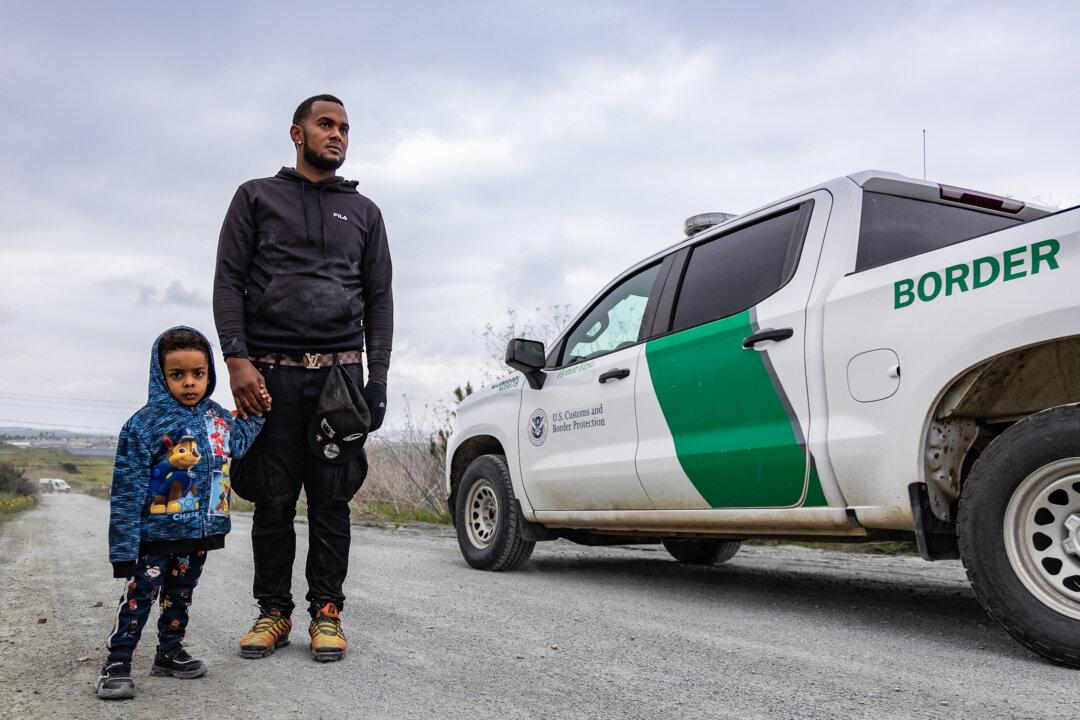It instructs agents to release into the United States single adults from “easy to remove” countries in the western hemisphere on their own recognizance with notices to appear in court, except for those from Cuba, Nicaragua, Haiti, Venezuela, Mexico, Guatemala, Honduras, and El Salvador.
Leaked Memo: Border Patrol Receives New Guidance on Illegal Immigrants
After the Biden administration moved to limit asylum, Border Patrol was told to release certain illegal border crossers with notices to appear in court.

Border Patrol agents drive past illegal immigrants in Otay Mesa, Calif., on Feb. 29, 2024. John Fredricks/The Epoch Times




